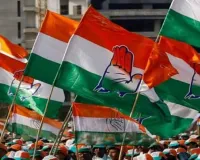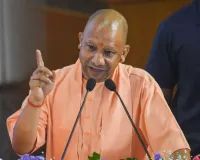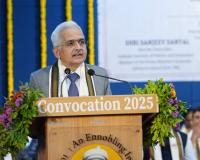Analysis: Pakistan’s dangerous game: Wooing Trump at the cost of China

Over the past few months, several overtures from Islamabad to Washington have revealed a desperate bid to regain relevance in the Trumpian world order. From mineral and crypto deals to symbolic gestures like nominating Donald Trump for the Nobel Peace Prize, Pakistan’s military elite appears to be betting its future on a renewed partnership with Washington, even if that means alienating Beijing.
For a country whose generals once proclaimed their friendship with China to be “higher than the Himalayas and deeper than the sea,” this sudden pivot is striking. This is not surprising given that Pakistan’s establishment has a long tradition of transactional diplomacy in pursuit of dollars, legitimacy, and strategic indulgence.
But what makes this different is that given how Beijing and Washington are now locked in a global leadership contest, Pakistan, by aligning itself too closely with one, risks becoming collateral damage.
Pakistani overtures began soon after Donald Trump’s second-term inauguration in January 2025. Within weeks, the Pakistan Army arrested and handed over a key ISIS-K operative, Mohammad Sharifullah, accused of abetting the August 26, 2021, Abbey Gate bombing at Kabul airport that killed 13 U.S. service members and roughly 170 Afghan civilians.
The timing of Sharifullah’s arrest was hardly coincidental. This gesture was a message from Asim Munir, who led the Pakistan military establishment to President Trump, that Islamabad was ready to be your regional partner again.
The move worked as Donald Trump publicly thanked Islamabad and hinted at a “new era” in U.S.-Pakistan relations. What has followed since is a cascade of carefully orchestrated gestures. In June, Asim Munir became the first Pakistani military leader to be hosted by President Trump for a formal luncheon at the White House, which is an honour typically reserved for heads of state.
Within days of that visit, Pakistan’s National Assembly, in what could be characterised as a bizarre display of flattery, nominated President Trump for the Nobel Peace Prize.
It was, incidentally, a day before the US joined the Israeli war against Iran and struck its nuclear facilities. Soon after, Islamabad signed a “strategic minerals partnership” allowing American firms access to rare earth reserves in Balochistan, which was previously monopolised by Chinese companies.
Given how the Pakistani establishment has been warming up to Donald Trump is something that could go unnoticed in Beijing. For nearly a decade, China had been Pakistan’s major partner investing billions of dollars under the China-Pakistan Economic Corridor (CPEC) and in return received exclusive access to extract Balochistan’s minerals.
As such, by inviting Washington into the very terrain makes it implicit that Pakistan, having become a model of China’s infrastructure diplomacy in the last decade, is auctioning its loyalties to the highest bidder.
But perhaps the most provocative sign of this geopolitical realignment cannot be observed in these deals but Pakistan’s recurrent bombing of Afghanistan in recent days.
On October 9, Pakistan conducted targeted strikes in Kabul and Khost provinces of Afghanistan, targeting Noor Wali Mehsud of the Tehreek-e-Taliban Pakistan (TTP). This was followed by a full-blown confrontation between Pakistan and Afghan forces from October 11/12, leading to dozens of military and civilian casualties on either side of the Durand Line.
While Islamabad’s explanation of retaliation against cross-border militancy has been unconvincing, beneath the rhetoric seems to be a deeper motive tied to the shifting regional calculus between Washington, Beijing, and Islamabad.
It should be recalled that days before the Afghan-Pakistan border clashes, President Trump had publicly demanded that the Taliban hand over the Bagram Airbase — Afghanistan’s largest military facility — to American forces. The base, he argued, was essential for maintaining a “regional presence” against China and Iran.
For over two decades of American occupation of Afghanistan, Bagram represented not just military utility but geopolitical leverage. For Pakistan’s generals, who have long specialised in “creating facts on the ground,” the airstrikes offered an opportunity to reposition themselves as the indispensable partner for a potential U.S. return to Afghanistan. This is a role that they relished during the Cold War and the War on Terror, as it brought unaccountable dollars to fill their coffers.
The strikes also carried a hidden message that Pakistan could act as a spoiler in Afghanistan’s fragile stability if its strategic value was ignored. In this sense, the assault was less about fighting the TTP, whom Islamabad has not only tolerated but even negotiated with in the past.
It was more about signalling to Washington that Pakistan remains the key to Afghanistan’s future. It was a move straight out of the military establishment’s old playbook of leveraging instability to regain relevance.
Nevertheless, this strategy now risks undermining China’s increasing economic interests in both Afghanistan and Pakistan. Since the U.S. withdrawal in 2021, Beijing has quietly expanded its footprint there and sought to integrate Afghanistan into the Belt and Road Initiative while securing access to its vast mineral reserves.
In August this year, the Taliban government signed agreements with China to extract copper, lithium, and rare earth elements, which are vital for China’s green technology transition and manufacturing industries.
Beijing has also viewed Afghanistan as an important buffer in securing its western provinces, particularly Xinjiang, and the north-south transit routes under the CPEC.
Pakistan’s airstrikes, therefore, did more than inflame tensions with Kabul as they risked destabilising China’s delicate investments and undercutting its influence in a region where it had painstakingly cultivated the Taliban’s trust. For a country that had invested billions in Pakistan’s infrastructure, energy, and mining sectors, this new volatility poses serious concerns.
It should not be difficult for Beijing to read the messaging that Pakistan’s military establishment appears to be once again repositioning itself as Washington’s frontline partner, even at the cost of jeopardising Chinese economic interests.
The fact that Islamabad has also signed a new crypto regulation and trade framework with American firms, reportedly aimed at facilitating digital transactions tied to resource deals, further highlights how Pakistan’s elite are seeking to integrate their financial fortunes with U.S. capital rather than Chinese state finance.
As such, signs of strain between Beijing and Islamabad are already emerging. Beijing has quietly suspended some funding tranches under CPEC, citing “regulatory uncertainties” besides persisting security concerns after a spate of attacks on Chinese personnel in Balochistan and Khyber Pakhtunkhwa last year.
This slow erosion of trust represents more than a diplomatic rift signals a structural realignment in Pakistan’s foreign policy away from Beijing toward Washington.
The irony is that China has been Pakistan’s most consistent benefactor, pouring over $60 billion into CPEC, providing military hardware, and shielding Islamabad from international isolation.
Yet, for the generals in Rawalpindi, immediate political and financial returns matter more than strategic consistency. The elite calculus is simple: a few high-profile U.S. deals and a symbolic nod from the White House can bring legitimacy, aid, and perhaps a temporary reprieve from Pakistan’s deepening economic crisis.
Nevertheless, Pakistan’s establishment may believe it is outsmarting the great powers, but history suggests otherwise. As it courts Washington with minerals and militants, it may soon discover that in a world defined by sharper alignments, there is little room left for a state that tries to play both sides. The cost of this latest gamble may not just be China’s trust, but it could be Pakistan’s last remaining strategic leverage.
About The Author
Welcome to Aryan Age, an English newspaper that has been serving readers since 2011 from Delhi. With a loyal circulation of over 19,000, we are dedicated to providing our readers with the latest news and information, as well as insightful analysis and commentary that help them navigate the complex and rapidly changing world.











Comment List